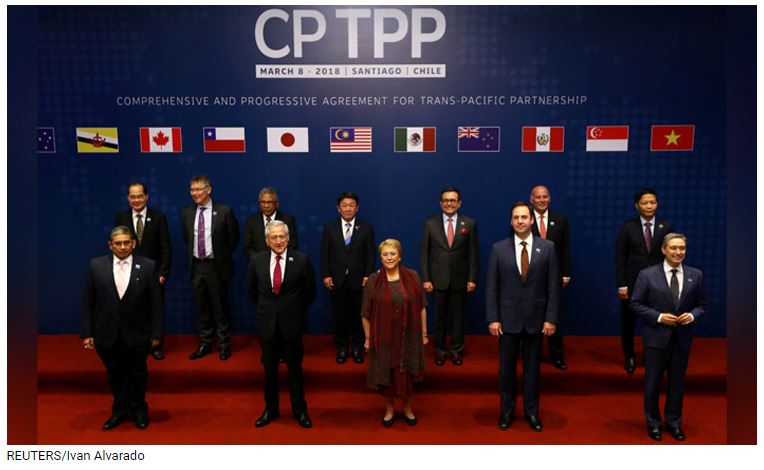CPTPP spells trouble for Asean, particularly Malaysia
The Comprehensive and Progressive Agreement for Trans-Pacific Partnership (CPTPP), which is the new acronym for the earlier botched Trans-Pacific Partnership (TPP), might pose serious problems for Asean countries that are signing up to this major trade and investment deal.
Among the countries concerned, Malaysian policy-makers are having second thoughts on the country’s participation in the deal.
The TPP failed to materialise after the US administration under President Donald Trump withdrew from global trade and investment. The US has since then pushed unilateral deals at the expense of multilateral agreements such as the TPP.
With the demise of the TPP effective January this year, the Japanese and the Australians mooted the idea of TPP11, minus the US indeed.
While the usual rhetoric of increased trade and comprehensive market access were the arguments advance to justify Malaysia’s participation, one wonders if all these can still be achieved without the CPTTP.
Malaysia already has free trade agreements with many of the 11 member countries of the CPTPP and has little trade with countries that it does not have any agreement with. In addition, the US has trade agreements with six of the 11 countries and all the TPP members also belong to the World Trade Organisation (WTO). The WTO is the single largest trade agreement conceived more than two decades ago.
On top of that, Malaysia is doing well in its bilateral dealings with the US in particular.
Economic ties between Malaysia and the US are robust. The US is Malaysia’s largest trading partner and Malaysia is the tenth-largest trading partner of the US.
Annual two-way trade amounts to $49 billion. The United States and Malaysia launched negotiations for a bilateral free trade agreement in June 2006. It did not materialise, but it appears that Malaysia does not really need the CPTPP to break into the American market.
All this suggests there is no compelling narrative for Malaysia to ratify the CPTPP as there are no likely benefits for Malaysia over and above what it is enjoying so far.
On the contrary, there are many pitfalls that the country could skillfully avoid by not ratifying the CPTPP, particularly with regard to intellectual rights and a dreaded legacy from the TPP that is the investor-state dispute settlement provisions.
On intellectual rights, analysts said that it would allow pharmaceutical firms to raise the value of trade through higher prices and not more goods.
It is estimated that the price of pharmaceuticals would escalate at astronomical rates which would make medical care in Malaysia expensive and not accessible to many. The production of generic drugs would be delayed and would have serious consequences to the standard of health care in Malaysia and other developing countries.
Another contentious issue that Malaysia would have to grapple with would be the TPP’s investor-state dispute settlement provisions which would allow foreign companies to sue host country governments for loss of profits, including future profits dues to policy changes that promote national interest.
The arbitration by these tribunals would override national laws and judiciaries in the country – which would be relegated to that of a subservient role.
Signing the CPTPP would certainly be a slap in the face of Malaysian judiciary and would be a mockery of the rule of law as Malaysia signs away its sovereignty through the TPP.
Another area that is likely to affect Malaysia would be the chapter on state-owned enterprises (SOEs).
There are many SOEs in Malaysia that emphasize public welfare instead of profit maximization. Currently, many of the SOEs can operate without profit with non-commercial assistance being provided to them to ensure business sustainability. But the TPP prohibits non-commercial assistance to SOEs valued at SDR 200 million ($277 million). This in turn would cause adverse effects to competition.
This will certainly affect many SMEs in the country that form the backbone of the economy. By adhering to regulations in the TPP, SOEs follow commercial considerations similar to the private sector in the purchase of goods and services. And this will alter the main objectives of SOEs in supporting domestic SMEs.
In short, there is no compelling narrative for Malaysia to ratify the CPTPP as we continue to enjoy the benefits of free trade with many countries albeit the many potential dangers it presents to the country’s developing economy.
Source: https://www.khmertimeskh.com/50562547/cptpp-spells-trouble-for-asean-particularly-malaysia/


 Thailand
Thailand




